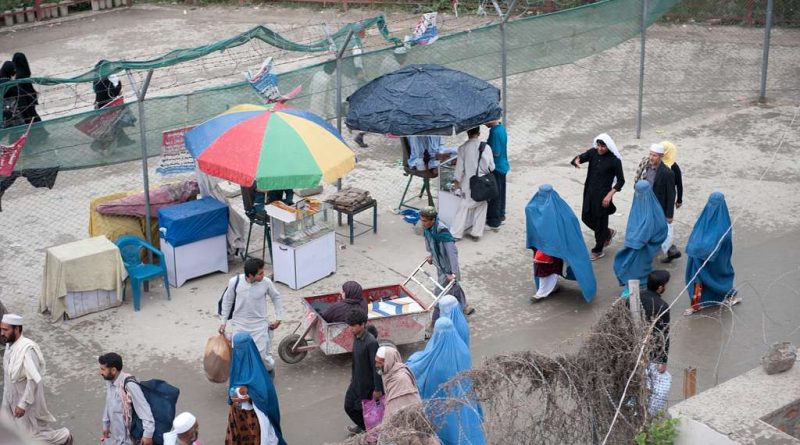Pakistan Announces Mass Deportation of Undocumented Immigrants
Kaila Engle
Staff Writer
In early October, the Pakistani government mandated a new policy that they would actively deport all undocumented immigrants starting November 1. This policy gave immigrants till October 31 to leave voluntarily. This law is applicable to all undocumented immigrants in the state, such as the Uyghurs fleeing genocide in China and Myanmar’s Rohingya, but it has a significant impact on the large Afghan immigrant population because they make up the majority of the undocumented immigrants living in Pakistan.
According to UN News, there are estimated to be more than 2 million undocumented Afghan citizens living in Pakistan, and at least 600,000 of them are estimated to have fled to Pakistan after the Taliban retook control over Afghanistan in 2021. The Pakistani government has officially determined there to be 1.7 million undocumented immigrants they have been able to detect so far. Many Afghan people who fled to Pakistan for asylum from the Taliban will now be forced to return home.
After the grace period, the Pakistani government will be actively detaining and deporting people without valid paperwork. According to CNN, authorities have mentioned that a task force has been made to “seize people with fake identity cards and illegal properties built on their fake documents,” and the country’s security databases have “ been ordered to cancel any ‘fake identity cards’ and confirm any cases with DNA testing.”
Afghanistan itself currently faces a lot of internal instability in the wake of international sanctions and decreased foreign aid after the 2021 Taliban takeover. The World Bank report on Afghanistan reports that the Afghan economy has drastically declined in the past two years, with significantly high inflation rates, the majority of firms unable to work at full capacity, declined exports, vulnerable banking systems, and other contributing factors. Amid a shortage of housing, jobs, food accessibility, and international aid, Afghanistan is not in the economic position to take in the rapid influx of millions people coming back to their borders.
A migrant said to Al Jazeera, “I lived in Pakistan for more than a decade. I have three children and a large, extended family, who are being pushed back after the government did not fulfill its promise of providing us proper documentation. I have no money, no roof. Where do I go back to?” These limited constraints, in addition to the prominent amount of gender-based violence government practices that violate international human rights documents and standards, will cause a severe human rights crisis in Afghanistan.
DW has reported a joint statement from the UN High Commissioner for Refugees and the International Organization for Migration where they mention, “We believe many of those facing deportation will be at grave risk of human rights violations if returned to Afghanistan, including arbitrary arrest and detention, torture, cruel and other inhuman treatment.”
The Pakistani government has deported undocumented immigrants in the past, but this new mandate is the first major and widespread step the government has taken towards addressing their undocumented immigrant population. Mumtaz Zahra Baloch, the spokesperson for Pakistan’s Ministry of Foreign Affairs, has spoken out about this new law and grace period. The Associated Press reports her stating that “Our policy is only about … individuals who are here illegally, no matter what their nationality is.” She further mentioned that “unfortunately there has been a misunderstanding or misrepresentation and for some reason people have starting associating this with Afghan refugees.”
Pakistan has been a country open to Afghan refugees for decades since the Soviet Occupation of Afghanistan in the late 1970s. The country has always held somewhat of an open border for immigrants, specifically Afghan refugees, because of the strong and long-lasting cultural ties between the two countries and their close proximity. Now Pakistan is beginning to switch to stricter immigration standards modeled by those usually held by states within more stable areas. A driving factor of this change is the presence of terrorists in Pakistan.
Another tension between Afghanistan and Pakistan is the Afghan Taliban’s inability to control the attacks and actions of the Pakistani Taliban, which is located in Kabul and whose actions have threatened and negatively impacted the Pakistan government. The Washington Post covers the Taliban’s response to this action and reports that Mohammad Hassan Akhund, acting Taliban president, mentioned “if the current military and civilian rulers of Pakistan, or specifically the generals, have any problems with the Afghan government, they should solve them through negotiations. Come and talk face to face with us; don’t mistreat refugees for that.”
Image courtesy of Nara



